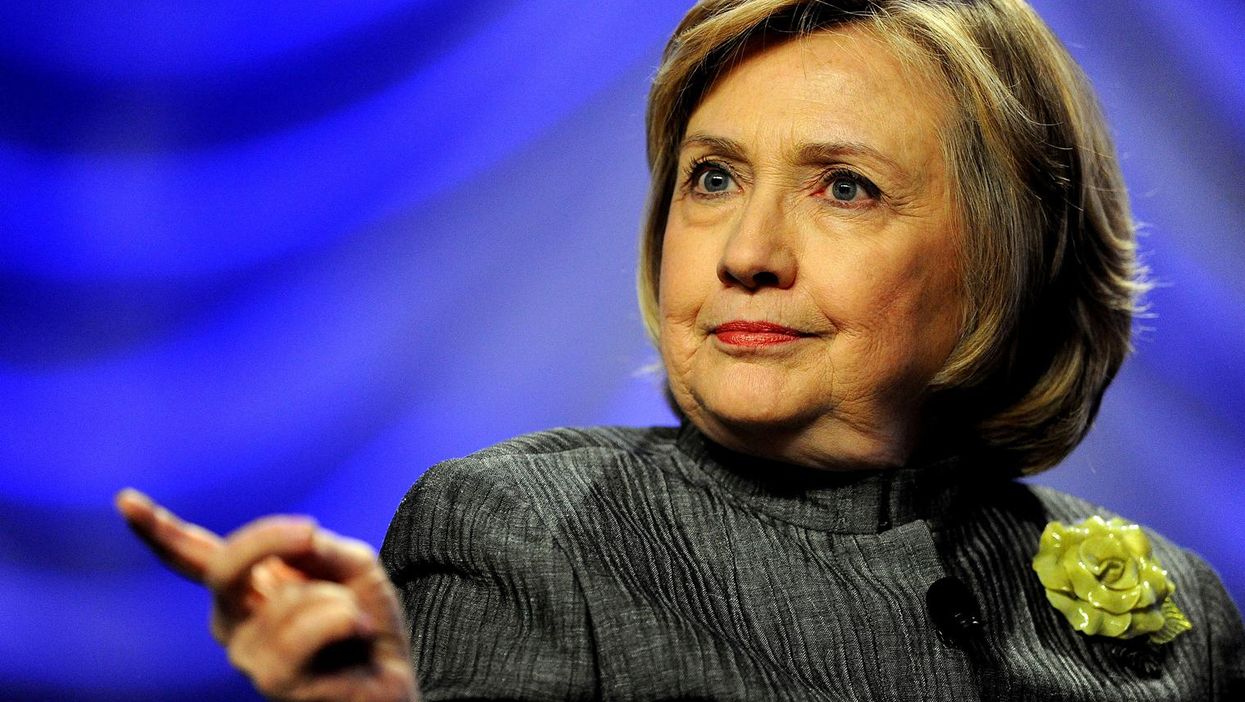Celebrities
Ellen E. Jones
Apr 12, 2015

If that unnamed source was correct, Hillary Clinton will be officially announcing her bid for the US presidency on Sunday. Other women have run before, but Clinton is the most serious contender to become America’s first female president in history.
It’s an exciting moment for America and for equal rights advocates all over the world. Or it should be. But as the British women who grew up under Thatcher can tell you, one woman at the top doesn’t necessarily mean much for those still scrabbling away near the bottom.
We can at least say that during her time as First Lady and Secretary of State, Clinton spoke out against the subjugation of women more than Thatcher ever did. Hopefully, if elected, she will also legislate according to these principles, but the simple fact of gender is no guarantee. For some supporters, whatever happens after Clinton reaches the White House is almost beside the point, anyway.
When young American girls see a woman in high office, they’ll believe they can grow up to be whatever they want to be. Admittedly, if C J Cregg said something like that on The West Wing I’d get misty eyed, but when applied to the real world, the sentiment is not so stirring. It’s not too-small dreams which hold back the world’s talented and capable women: it’s too-big barriers.
If Clinton is to be the first feminist president as well as the first female one, she’ll have to do more than simply personify change; she’ll actually have to bring some about.
Like ensuring access to contraception and abortion, taking action on the gender wage gap, and reforming a justice system which last week sentenced a woman to 20 years in prison for the “crime” of miscarrying. And if Clinton wants to do that, she’ll probably need some help from other powerful women in the federal government and at the level of state legislature.
Therein lies the problem, because if women in power are merely symbols – even competent, well-qualified symbols – their presence not only does nothing to create opportunities, but it actively prevents other women from advancing. Researchers who analysed the top tiers of 1,500 firms from 1991 to 2011 found that while companies may work hard to get that first woman in a management role, once she has been appointed, the chances of another female colleague joining her halve.
“We thought that the hiring of one woman would lead to a snowball effect at a given company,” said report co-author and associate professor Cristian Desz. “In fact, what we find is exactly the opposite. Once they had appointed one woman, the men seem to have said, ‘We have done our job.’”
Britain is the perfect example of how this “job done” attitude plays out on a national scale. We elected our first female prime minister in 1979; 36 years and seven general elections later, there have been no more.
Top 100
The Conversation (0)












